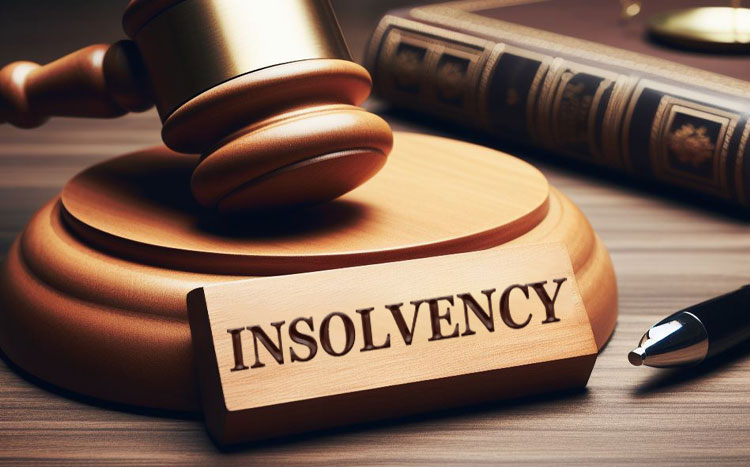
Insolvency can be a daunting prospect for any business owner. Whether facing financial difficulties or navigating the complexities of bankruptcy, understanding the role of insolvency lawyers is crucial. This guide aims to demystify the functions of these legal professionals and provide practical insights for business owners grappling with insolvency issues.
Understanding Insolvency
Insolvency occurs when a business cannot meet its financial obligations as they fall due. This situation can arise from various factors, including poor cash flow management, economic downturns, or unexpected expenses. Recognising the signs of insolvency early and seeking guidance from experienced insolvency lawyers can be pivotal in determining the best course of action.
There are two primary types of insolvency: cash flow insolvency and balance sheet insolvency. Cash flow insolvency refers to the inability to pay debts as they come due, while balance sheet insolvency occurs when a company’s liabilities exceed its assets. Understanding these concepts is essential for business owners, as they dictate the legal options available.
The Role of Insolvency Lawyers
Insolvency lawyers specialise in providing legal advice and representation to individuals and businesses facing financial distress. Their expertise spans various aspects of insolvency law, enabling them to guide clients through complex legal processes. Here are some key functions they perform:
1. Legal Advice and Consultation
One of the primary roles of an insolvency lawyer is to offer legal advice tailored to the specific circumstances of the business. This includes evaluating the financial situation, identifying potential legal issues, and advising on the best course of action. Business owners may seek counsel on whether to pursue restructuring, liquidation, or other options.
Insolvency lawyers also help clients understand their rights and obligations under insolvency law. This knowledge is vital for making informed decisions and avoiding potential pitfalls during the insolvency process.
2. Representation in Bankruptcy Proceedings
Should a business owner decide to file for bankruptcy, an insolvency lawyer plays a crucial role in representing them throughout the proceedings. This includes preparing and filing necessary documents, attending court hearings, and negotiating with creditors. Their expertise ensures that the process adheres to legal requirements and protects the interests of the client.
Insolvency lawyers also assist in developing a repayment plan or restructuring proposal, which must be approved by the court and creditors. Their negotiation skills are invaluable in reaching agreements that can facilitate a smoother resolution.
3. Navigating Complex Legal Issues
Bankruptcy cases often involve intricate legal issues, including multiple jurisdictions and various stakeholders. Insolvency lawyers are equipped to handle these complexities, ensuring that all legal aspects are addressed appropriately. They may also collaborate with financial experts to provide a comprehensive approach to the insolvency process.
Furthermore, as bankruptcy cases become increasingly complex, having a lawyer with specialised knowledge can significantly impact the outcome. They can identify potential legal challenges and develop strategies to mitigate risks effectively.
Types of Insolvency Procedures
Insolvency lawyers guide clients through various procedures, each with its own implications and requirements. Understanding these procedures is essential for business owners considering their options.
1. Voluntary Administration
Voluntary administration is a process where a company appoints an administrator to manage its affairs, with the aim of maximising returns to creditors. This procedure allows the business to continue operating while restructuring its debts. An insolvency lawyer can assist in the appointment of an administrator and ensure compliance with legal obligations throughout the process.
The administrator will assess the company’s financial position and propose a plan to creditors. If accepted, this plan can provide a pathway for the business to recover and continue trading.

2. Liquidation
Liquidation involves the winding up of a company’s affairs, where assets are sold off to pay creditors. This process can be voluntary or involuntary, depending on the circumstances. An insolvency lawyer can help navigate the complexities of liquidation, ensuring that the process is conducted fairly and in accordance with the law.
During liquidation, the lawyer’s role includes advising on the distribution of assets, representing the interests of shareholders, and addressing any disputes that may arise. Their expertise is crucial in ensuring compliance with legal requirements and protecting the rights of all parties involved.
3. Bankruptcy
For individuals, bankruptcy is a legal status that provides relief from debts. An insolvency lawyer can assist in filing for bankruptcy, helping clients understand the implications and obligations that come with this decision. They will guide clients through the process, ensuring all necessary documentation is completed accurately and submitted on time.
Bankruptcy can have long-term effects on an individual’s financial future, making it essential to seek legal advice before proceeding. An experienced insolvency lawyer can help clients explore alternatives to bankruptcy and develop a strategy that best suits their circumstances.
Recent Trends in Insolvency Law
The landscape of insolvency law is continually evolving, influenced by economic conditions and legislative changes. Staying informed about these trends is vital for business owners and their legal representatives.
1. Increase in Bankruptcy Filings
Recent statistics indicate a significant rise in commercial Chapter 11 filings, with a 20% increase in 2024 compared to the previous year. This trend reflects broader economic challenges that many businesses face. Insolvency lawyers must be prepared to navigate this surge in filings, ensuring they can provide effective representation for their clients.
As the economy continues to fluctuate, it is likely that bankruptcy filings will return to pre-pandemic levels within the next 24 to 30 months, as noted by industry experts. This anticipated increase underscores the importance of having knowledgeable legal counsel during times of financial uncertainty.
2. Technological Advancements
The integration of technology, particularly artificial intelligence, is transforming the practice of insolvency law. AI tools are enhancing efficiency in bankruptcy proceedings, from document review to fraud detection. Insolvency lawyers are increasingly leveraging these technologies to streamline processes and improve outcomes for their clients.
As technology continues to evolve, staying abreast of these advancements will be crucial for insolvency lawyers. Embracing new tools can enhance their practice and provide clients with more effective solutions during challenging times.
3. Legislative Changes
Recent legislative changes have introduced new requirements for insolvency practitioners, necessitating ongoing education and adaptation. Insolvency lawyers must stay current with these evolving legal frameworks to ensure compliance and provide accurate advice to their clients.
Understanding these changes is essential for navigating the complexities of insolvency law and ensuring that clients receive the best possible representation. Regular training and professional development are vital for maintaining expertise in this dynamic field.

Conclusion
Insolvency lawyers play a crucial role in guiding business owners through the complexities of financial distress. Their expertise in legal advice, representation, and navigating intricate legal issues is invaluable for those facing insolvency. By understanding the various procedures and recent trends in insolvency law, business owners can make informed decisions and seek the support they need during challenging times.
As the landscape of insolvency continues to evolve, staying informed and seeking professional legal advice is essential for navigating the complexities of financial distress. With the right support, business owners can find pathways to recovery and emerge stronger from their challenges.
See Also: Insolvency Lawyers Sydney: Expert guidance for businesses in financial distress
FAQs on Insolvency Lawyers and Processes
Insolvency occurs when a business cannot pay its debts as they become due (cash flow insolvency) or when liabilities exceed assets (balance sheet insolvency). Early signs include difficulty meeting payroll, unpaid supplier invoices, and mounting debt.
Insolvency lawyers provide legal advice, guide business owners through restructuring or bankruptcy, represent clients in court proceedings, negotiate with creditors, and ensure compliance with insolvency laws.
They handle all legal aspects of bankruptcy, including filing documents, attending hearings, negotiating repayment plans, and advising on alternatives to bankruptcy to protect the client’s interests.
Voluntary administration allows a company to appoint an administrator to restructure debts while continuing operations. Insolvency lawyers assist with the appointment, compliance, and drafting proposals for creditors.
Liquidation involves selling a company’s assets to pay creditors. Insolvency lawyers ensure the process is lawful, advise on asset distribution, represent stakeholders, and resolve disputes that may arise.
Yes. They can evaluate alternatives such as restructuring, voluntary administration, or negotiated settlements with creditors to help businesses remain operational and avoid formal bankruptcy.

